Tackling Spread of Dengue: Hospitals outside Dhaka not ready
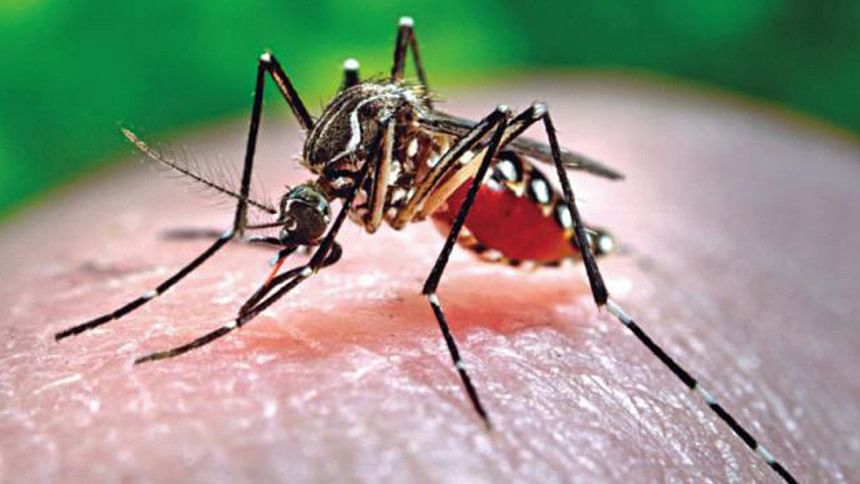
After Antor Dutta, a 17-year-old college student, woke up with a fever on Tuesday morning, he was taken to Narsingdi Medical College Hospital. Doctors there gave him some medicines and advised him to take proper rest.
The fever, however, did not show any sign of decreasing throughout the day.
Later that night, Antor’s mother Runa Rani Dutta took him to the hospital again. This time, physicians referred the teenage boy to Dhaka Medical College Hospital. He was admitted there early yesterday.
“Although the doctors [in Narsingdi] could not diagnose dengue, they suspected that my son had the disease. That’s why they sent him here,” the woman told The Daily Star at the DMCH last night.
Talking to The Daily Star, physicians and government health offi-cials said doctors outside the capital were struggling to diagnose dengue at the initial stage as they were not given proper training in “dengue management”.
Also, they don’t have the kit that detects dengue instantly, they said.
The Director General of Health Service (DGHS) has provided the training to some 2,000 doctors, but all of them are in government hospitals in the capital.
This year, dengue, spread by Aedes mosquitoes, has taken an alarming turn in Dhaka. The picture outside the city, however, is still not that grim.
DGHS data show 8,565 people have so far been infected with dengue between January 1 and yesterday, and 179 of them were from outside Dhaka.
Five of all the total dengue patients have died, it shows.
In 24 hours since 8:00am on Monday, 560 new dengue cases were reported at hospitals, which is the highest for a single day, show the data.
Doctors and hospital officials, however, said the numbers could be higher as many dengue cases go unreported.
Talking about the doctors dealing with dengue patients outside the capital, DGHS officials said the physicians did not have the NS1 kit to diagnose dengue instantly.
NS1 antigen test (nonstructural protein 1), is a test for dengue, in-troduced in 2006, which allows rapid detection on the first day of fever, before antibodies appear some five or more days later.
Earlier, doctors used to wait for four to five days before carrying out any medical test on a patient to detect dengue. But this year, doctors are suggesting to have the examination on the first day of the fever, saying the pattern of the disease has changed. The physicians say the treatment should begin right away.
Ferdousi Akhtar, assistant director of DGHS, (Khulna division), said doctors at district and upazila levels did not get training in dengue management and the kit.
She said they were providing treatment based on their experience.
Several other doctors in other districts said the same.
Asked, Prof Sanya Tahmina, director of communicable disease con-trol at the DGHS, said, “Dengue cases are being reported outside Dhaka as well. We will train doctors outside Dhaka through video conferencing from next week.”
Dr Meerjady Sabrina Flora, director of Institute of Epidemiology, Disease Control and Research (IEDCR), said they were yet to provide the NS1 kit to the doctors as the number of dengue cases outside the capital was still comparatively low.
Talking to this correspondent, AHM Nazmul Ahsan, associate professor of Shaheed Suhrawardy Hospital and also one of the core editors of preparing a national guideline for clinical management of dengue syndrome, said most of the dengue cases were found in Dhaka.
But as people go from one place to another, dengue cases are being reported in other areas as well, he said, adding that doctors outside the capital also must have proper training in dengue management.
“There is a national guideline and we tried to give it to almost eve-ry doctor. If a doctor follows the guideline properly, he or she will not face any problem in treating dengue patients,” he said.
CONFUSION OVER DEATH TOLL
Though the number of people who have died of dengue has increased, the DGHS still says the figure is five.
This figure is, however, disputed by other experts.
Savio Rogerio, a nine-year-old boy, died of the disease at a hospital in the capital yesterday, said the hospital authorities. They said it was the second such case in the last few days.
The private hospital’s Managing Director Kumar Chakrabarty said six people died of dengue at the hospital between June 1 and July 24.
Suffering from dengue, Civil Surgeon of Habiganj Dr Mohammad Shahadat Hossain Hajra died in Shaheed Suhrawardy Hospital on July 22. Four similar cases were reported at the DMCH and two at Dhaka Shishu Hospital in recent months, said officials there.
The DGHS also does not have the records.
Asked, Dr Aysha Akther, assistant director at the DGHS control room, said they keep records on the deaths from dengue following a review of an IEDCR committee.
Analysing all necessary information and test results, they update the DHGS data, said sources there.
Meanwhile, Road Transport and Bridges Minister Obaidul Quader yesterday said dengue took a terrifying turn as lives were being lost in Dhaka and elsewhere.
“I have talked to both the mayors of Dhaka city. The Dhaka south mayor told me that the insecticide used for controlling mosquitoes is quite ineffective. I have asked the health minister to ensure that the mayors get effective mosquito repellent,” he said at his office.
PM ON DENGUE
Prime Minister Sheikh Hasina yesterday instructed the officials con-cerned to minimise sufferings of the dengue victims, PM’s speech writer Md Nazrul Islam told a media briefing emerging from an inter-ministerial coordination meeting, reports BSS.
“The PMO asked the authorities concerned of the two Dhaka city corporations to strengthen their anti-mosquito drives to check dengue,” he said.
She also instructed the health authorities to form a special medical team in each city hospital to ensure smooth and proper treatment of dengue patients. A decision was also taken to observe a “den-gue awareness week” from today.
The PMO asked all government officials to clean their respective of-fices and to prevent dengue, alongside motivating people to keep their residences and neighbourhoods clean by removing stagnant clean water from different pots, particularly flower tubs, air conditioners and refrigerators.

 For all latest news, follow The Daily Star's Google News channel.
For all latest news, follow The Daily Star's Google News channel. 


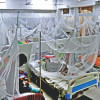
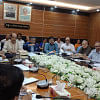
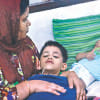
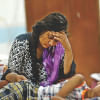

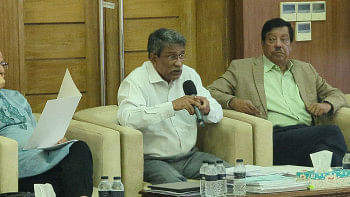
Comments